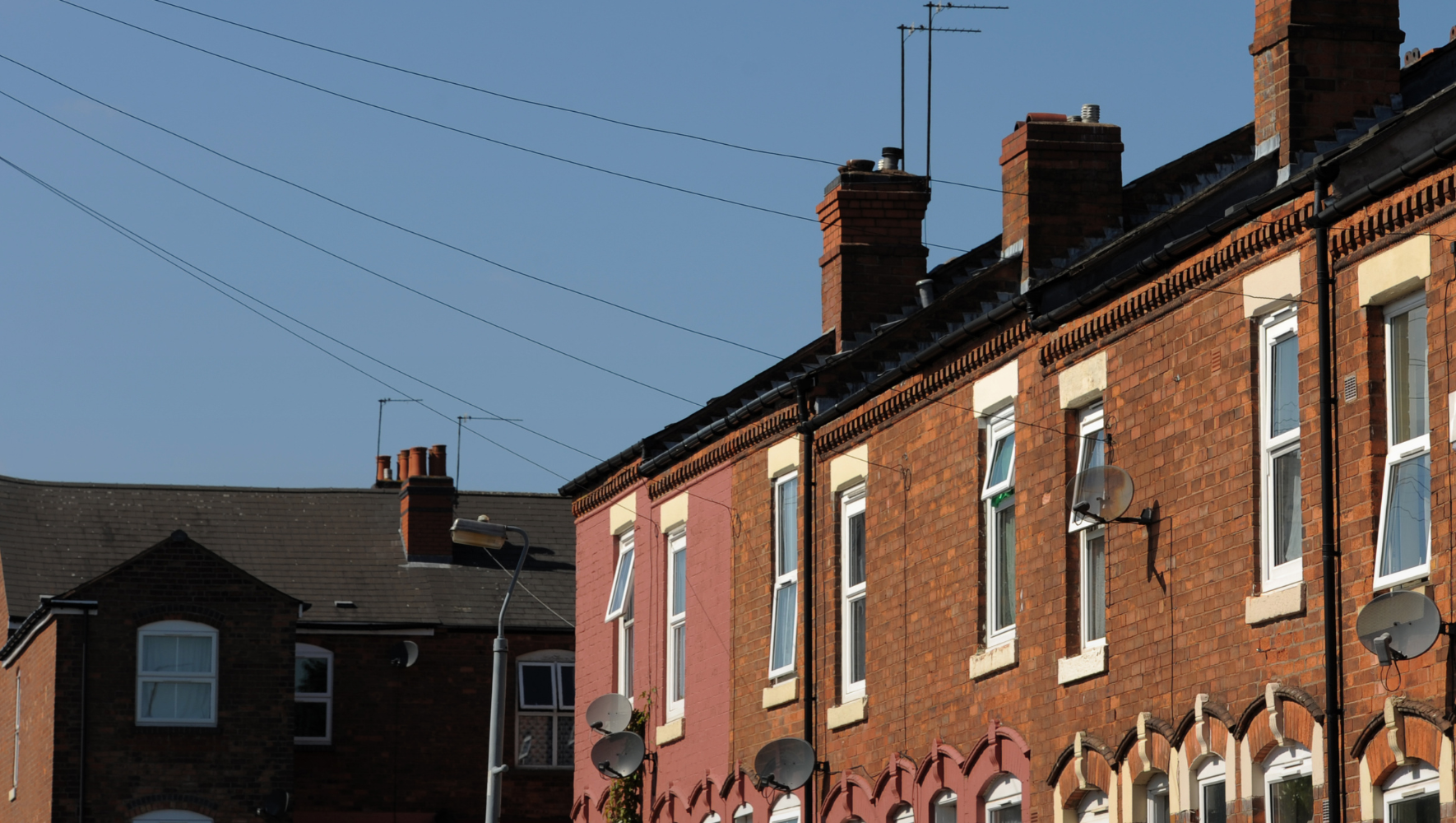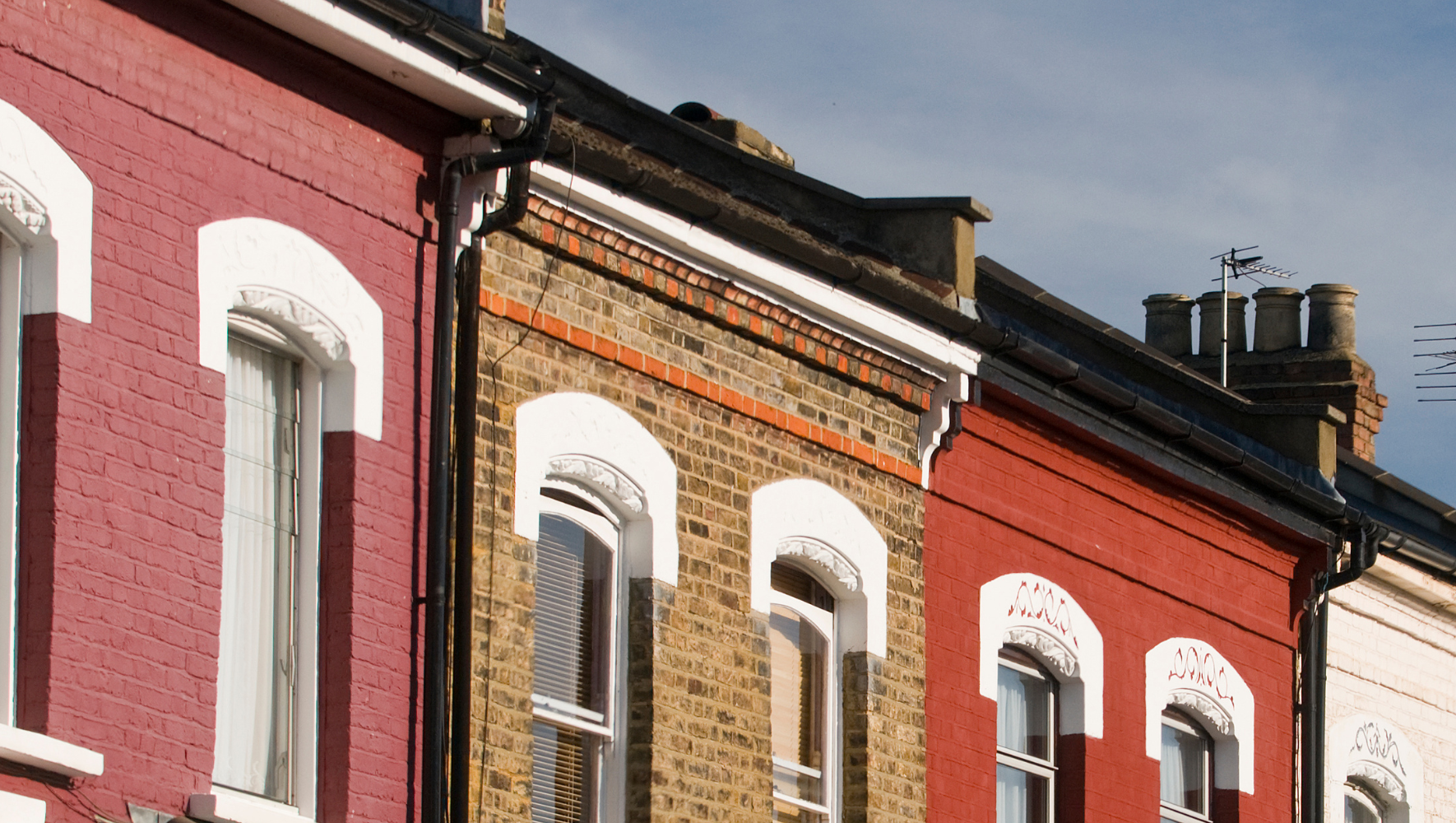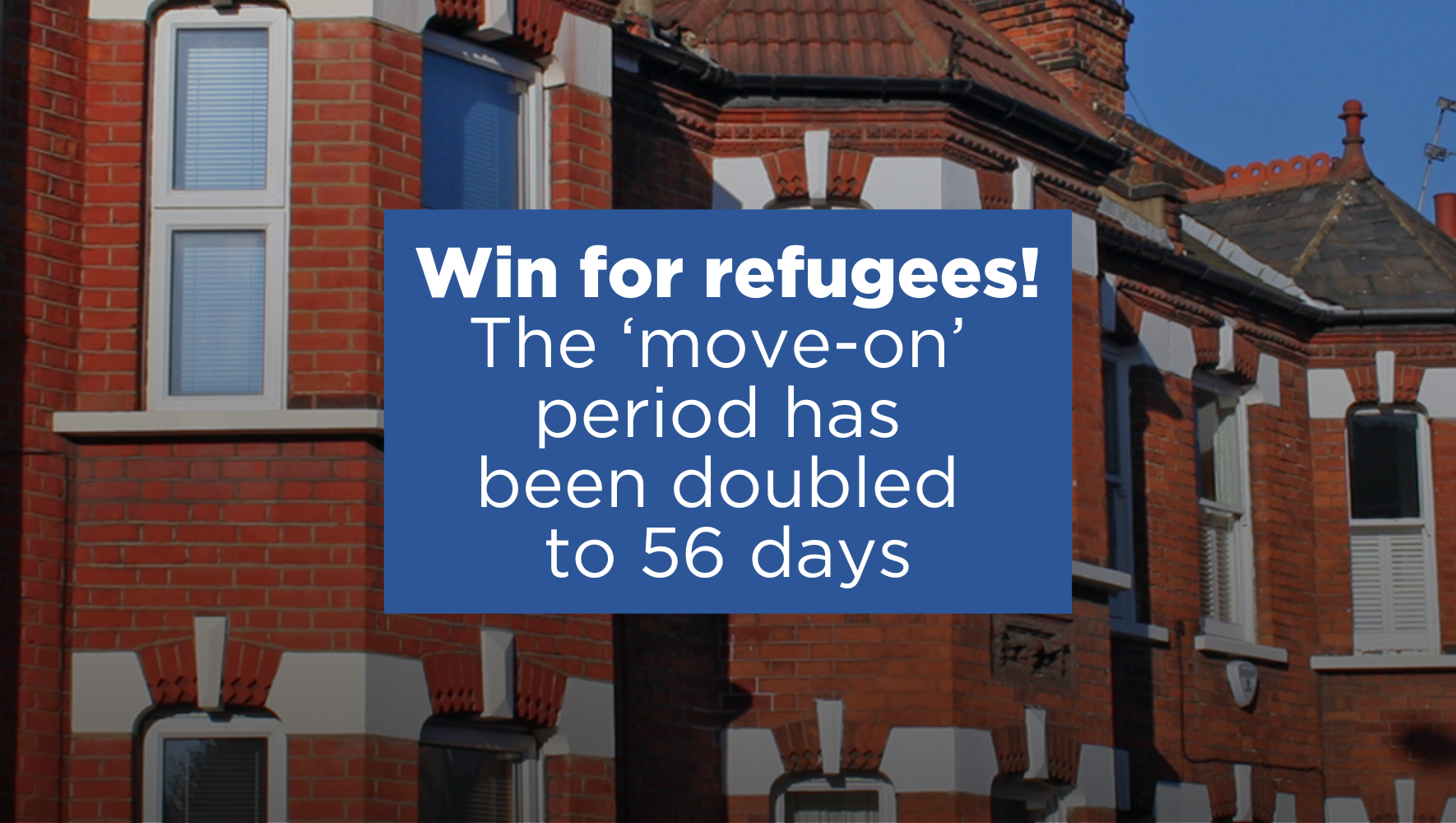
Campaign update
We are deeply disappointed that the trial 56 day ‘move-on’ period will be halved for most new refugees from 1 September 2025. This is a backward step which risks pushing many into destitution and onto the streets. Our team has found clear evidence that an extended ‘move-on’ period was both reducing homelessness and having a positive impact for both local authorities and refugees. We’re now calling for a permanent 56-day ‘move-on’ period to be urgently implemented.
It’s not just NGOs and local authorities who’ve highlighted the clear benefits of an extended move-on period. In October 2025, the Home Affairs Select Committee labelled the decision to halve the move-on period as “extremely disappointing” and urged the reinstation of the previous 56-day policy.
With winter fast approaching, it’s crucial that we keep up the momentum. Read on to learn how you can take action.
Why is a 56 day ‘move-on’ period so important?
Receiving refugee status should be a cause of celebration. But for far too many new refugees, a 28-day ‘move-on’ policy is a countdown to homelessness. Here are the reasons why the Government must make a 56 day ‘move-on’ period permanent.
What is the ‘move-on’ period?
People waiting for a decision on their asylum claim in the UK receive limited financial support (£49.18 a week, or £9.95 for those in catered housing), and accommodation.
But once single adults (who account for the majority of those in the asylum system) receive a positive decision – either refugee status, or another grant of protection – they only receive this Home Office support for another 28 days.
What problems does this cause?
New refugees get just four weeks to find new, private accommodation (and a way to fund this).
Many won’t have any savings or money to fall back on. People seeking asylum generally aren’t allowed to work while their claims are being processed.
But 28 days is often not enough time to secure employment, or access Universal Credit – where there is a five week wait until the first payment is made. New refugees also face cultural and language barriers as they enter a challenging accommodation market, and have to navigate complex bureaucracy to access the support they’re entitled to.
What was the previous result of a 28 day ‘move-on’ period?
These obstacles forced many new refugees into homelessness.
Data from Homeless Link found a 966% increase in rough sleeping amongst people who had left asylum support between May 2023 and December 2023.
This was partly resultant of a thankfully reversed policy change, which gave new refugees just seven days to leave their accommodation. But it’s clear that the previous policy of 28 days was still far too little time to allow refugees to set themselves up independently. Recent data from NACCOM has found that refugee homelessness increased by 99% in 2023/24 – with the organisation declaring a “refugee homelessness emergency” in the UK.
What should the Government do instead?
We need the move-on period to be permanently extended to 56 days. This would address issues with Universal Credit, which has a built-in 35 day delay before a first payment is made, and would match the limit under the Homelessness Reduction Act. Doing so would mean that being granted refugee status can again become a time of celebration, not fear, for displaced people.
If the decision to halve the move-on period to 28 days for most new refugees isn’t reversed, we’re deeply concerned that this winter will see a serious rise in refugees rough sleeping. People who have sought safety here deserve far better than that.

What’s changed on refuge and asylum? The new Labour government, one year in
Read More
The ‘move-on’ period pilot, six months on
Read More
A moral imperative: The Jewish case for extending the ‘move-on’ period
Read More
Three reasons why we must extend the ‘move-on’ period
Read More



